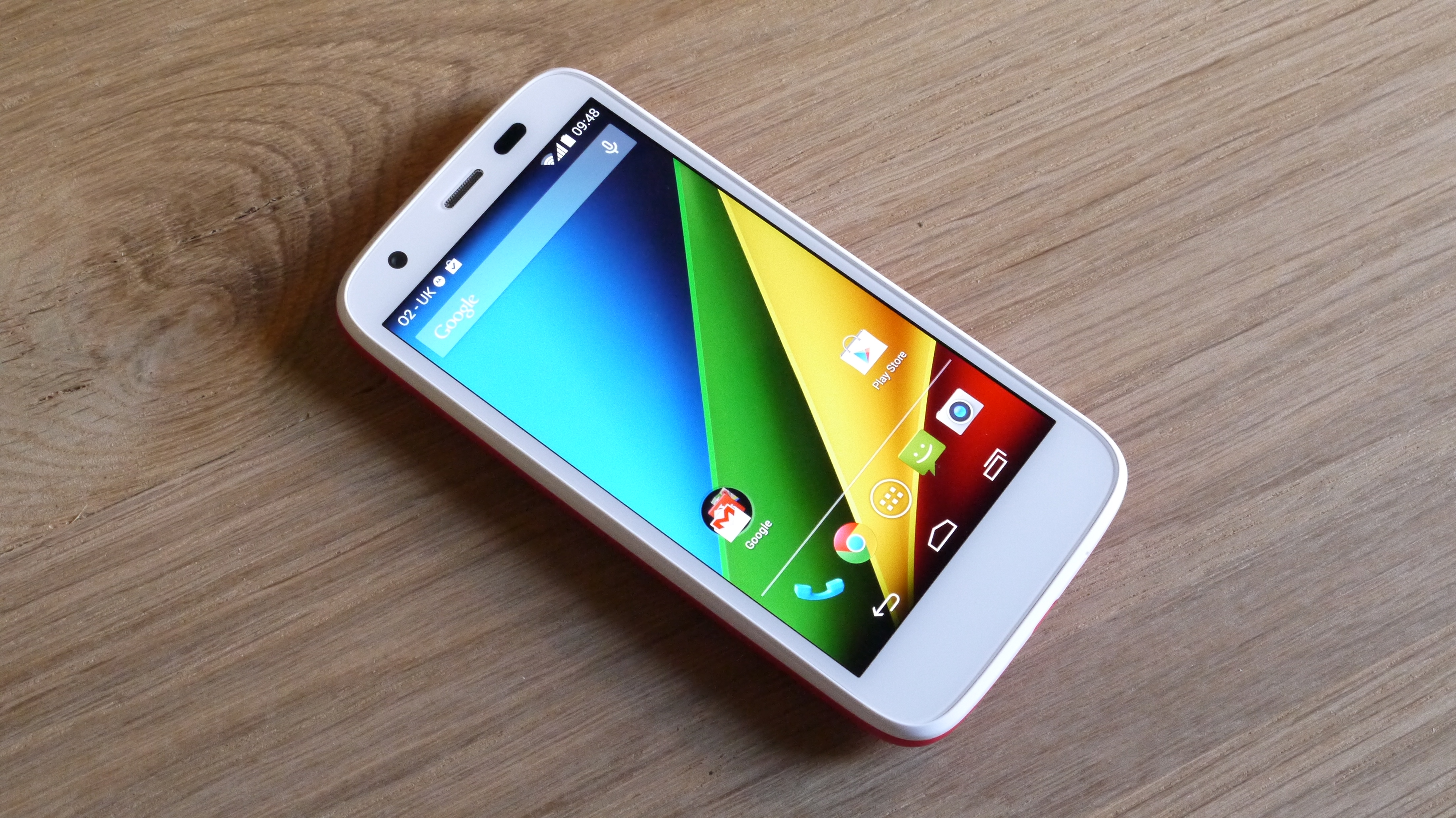TechRadar Verdict
A stunning phone for very little money - poorer camera aside, it's the perfect PAYG phone. You won't get a better budget blower than the Moto G.
Pros
- +
Great value
- +
Decent screen
- +
Slick interface
Cons
- -
Poor camera
- -
Low internal storage
- -
Extra cost for microSD and 4G
Why you can trust TechRadar
Update: Time has passed, and Moto's latest line of budget-friendly phones is full of better options than the Moto G (2013).
If you're interested in a good all-around smartphone that won't cost a whole lot, check out the Moto G4.
The Moto G4 Plus amps up the performance and adds a fingerprint sensor to the formula for just a little more cash.
Lastly, the Moto G4 Play retains the essentials in the G4 formula, but slashes the price nearly in half. Sure, it isn't as fast or feature-filled as the G4 or G4 Plus, but it's still a heck of a deal.
The best part about the newer devices is that Android Nougat will be available soon. So, the amount of valid reasons to consider an older Moto G, like this phone, are dwindling quickly.
Original review follows below.
Motorola kicked off its global smartphone revival with the keenly priced Moto G handset, which was quickly followed by the 4G enabled Moto G 4G.
Sign up for breaking news, reviews, opinion, top tech deals, and more.
Both have since been replaced by the larger, 5-inch Moto G (2014) edition, although it will set you back a little more and the bigger screen may not suit everyone's tastes.
The first generation Moto G is a mid-range handset with a low-end price tag and Android Lollipop (at least on the 3G version)- enough to pique the interest of many savvy shoppers..
First things first then, the Motorola Moto G price. You can pick the 3G handset up in two storage sizes - 8GB and 16GB. The former will now set you back around £100/$140, while the larger size is still very palatable at around £120/$170.
Motorola has enhanced the handset with the new Moto G 4G iteration, which is ever so slightly pricier coming in at around £110 - but does also pack in a microSD slot for some lovely storage expansion. That price is for the 8GB model, as the Moto G 4G doesn't have a 16GB variant.
It's difficult to find a first generation Moto G on general sale now though, especially the 3G variant, with most retailers now stocking the newer second gen, 2014 version.
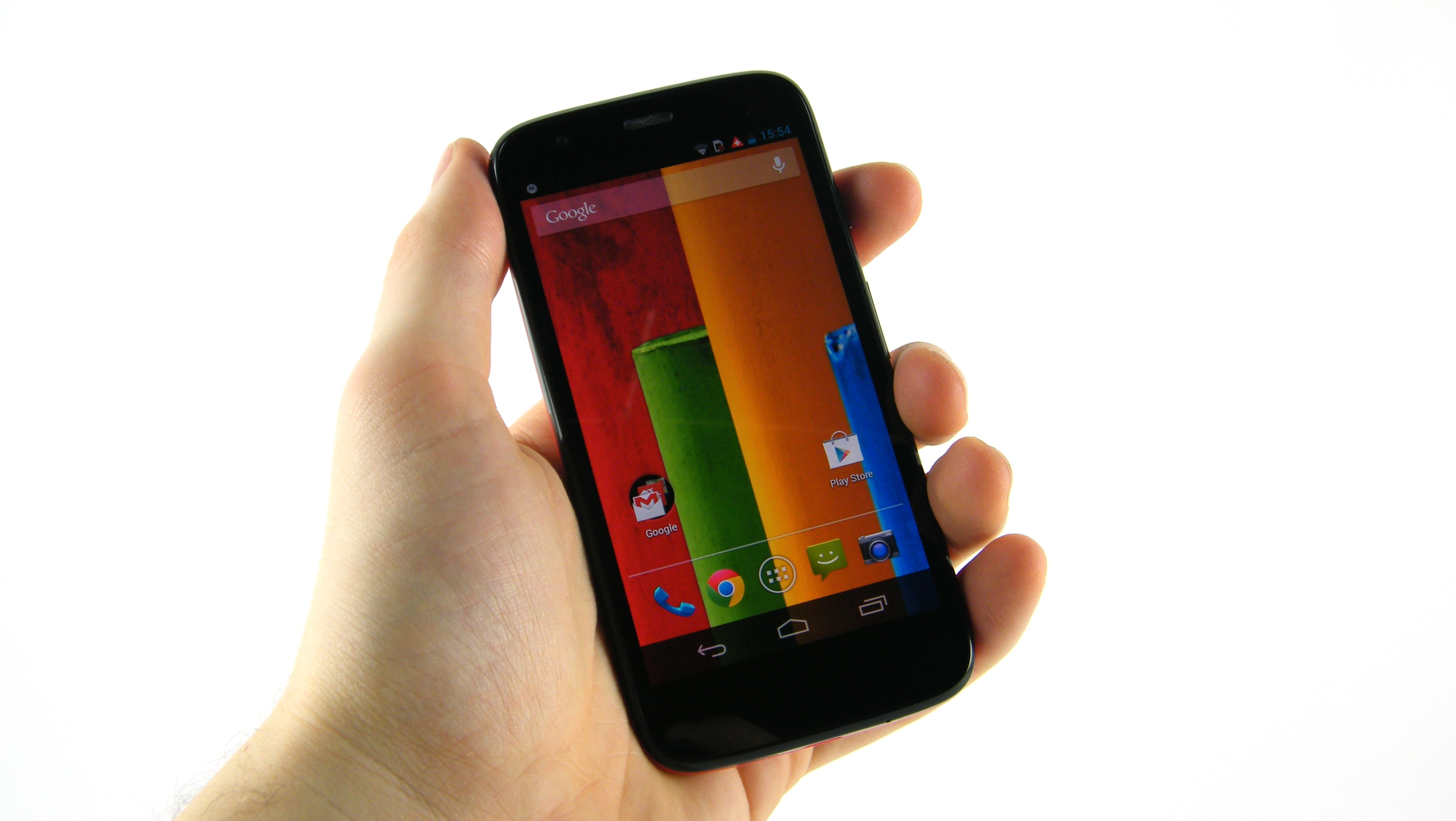
So where does this place the Moto G in the market? Well at that price it has the likes of the Sony Xperia M2, Microsoft Lumia 640 and HTC Desire 510 for company and in terms of specs it easily stands up to them.
In terms of design both the Moto G and Moto G 4G take most of their cues from the firm's first, post-Google takeover handset, the Moto X.
It's hardly groundbreaking in terms of looks, but the soft, curved edges of the Moto G make it relatively attractive and the swath of plastic feels solid and well built.
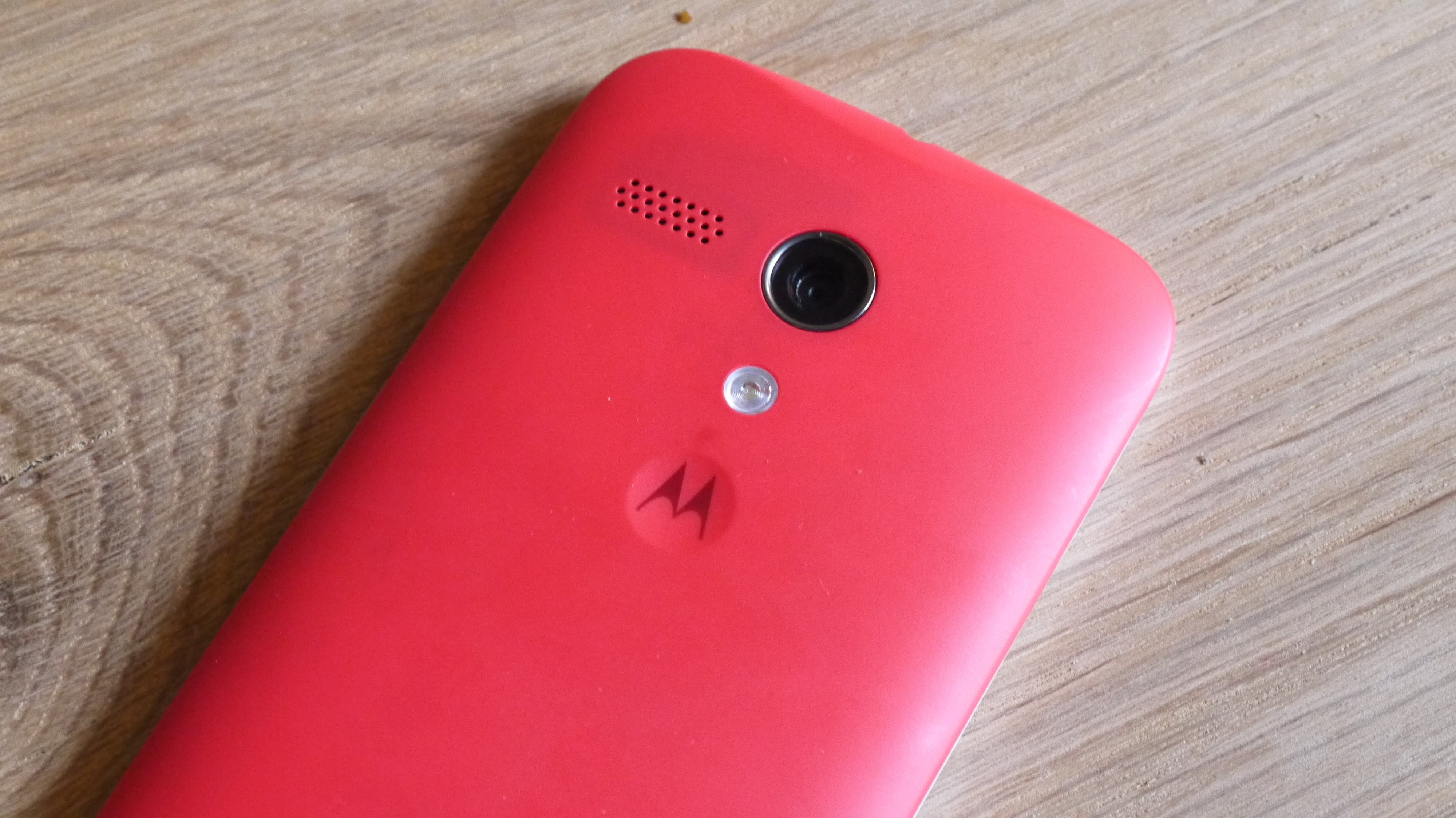
Weighing in at 143g the Moto G has a pleasing, well balanced presence in the hand without being overbearing, and while it may measure 11.6mm thick in the middle the tapered edges make it feel thinner than it is.
Couple that with a rubberised rear plate which slightly hugs the side of the handset too, and the Motorola Moto G fits comfortably in the palm, providing a decent level of grip.
The Moto G features a water repellent coating which means you'll be able to whip it out in the rain without fear of a short circuit, but it is not waterproof - so no jumping in the bath with it.
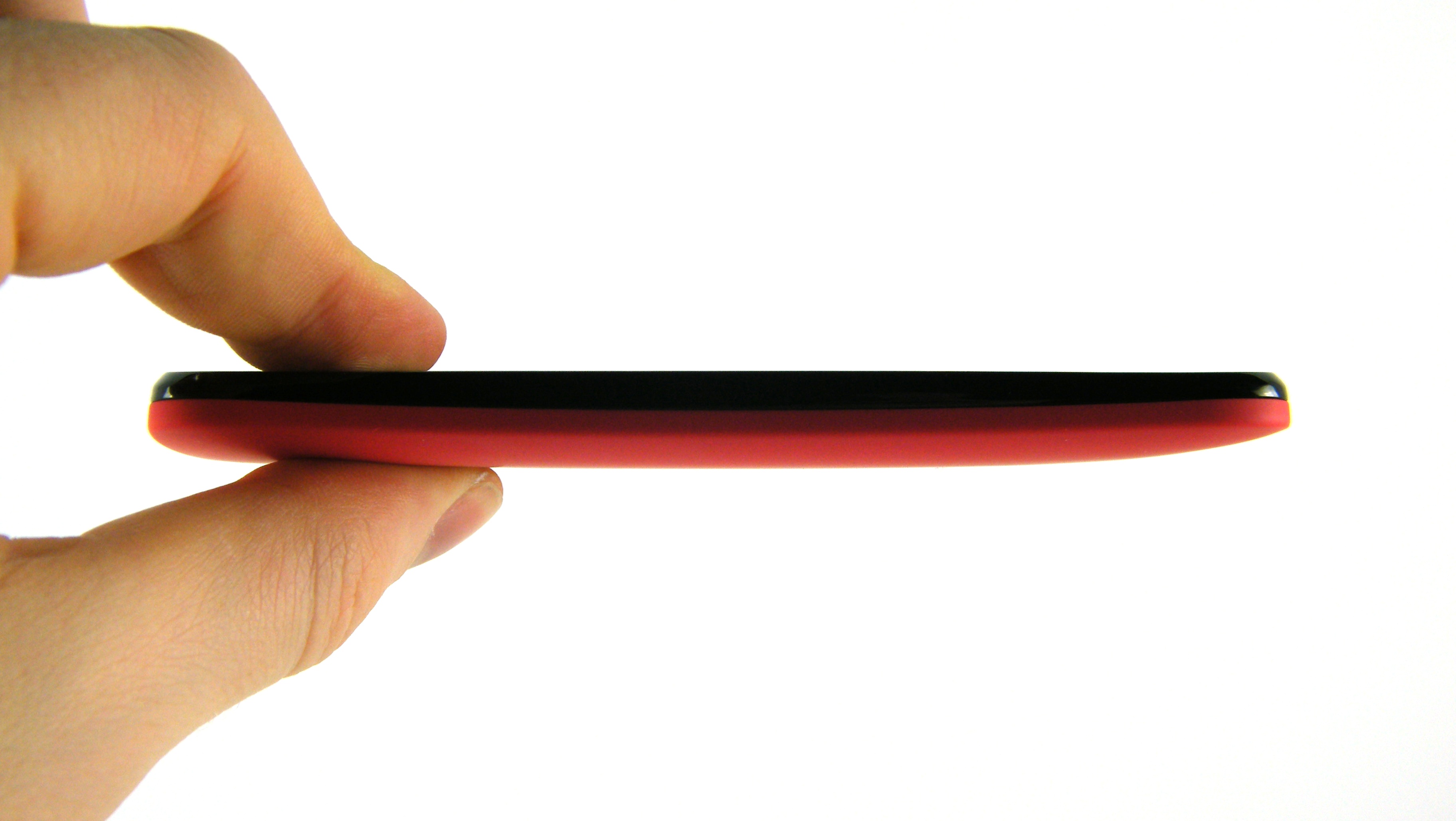
You can even take the rear cover off and swap it for a different color, which Motorola is pushing as a big customizable feature of the phone. In reality however it just reminds me of my Nokia 3310.
Sure, changing covers is fun for all of five minutes, but the novelty soon wears off. Not to mention the back cover is also pretty tricky to remove - you need to really dig your nails in at the base of the handset to get it free.
In fact, so much strength needs to be employed to free the cover from the Moto G I feared on more than one occasion that the thin plastic would snap - thankfully it never did.
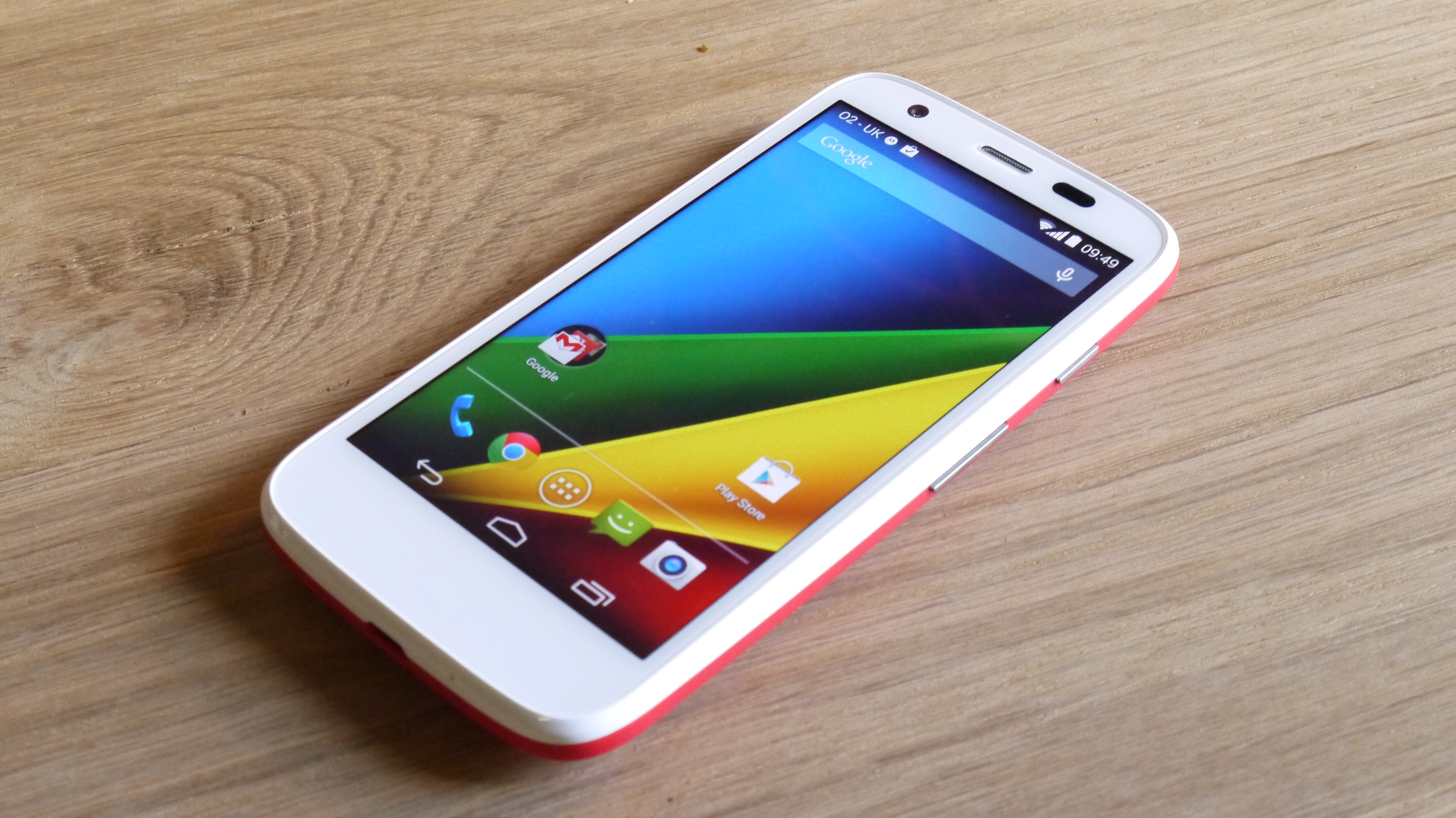
Motorola did make a point that the younger generation like the ability to "customize" their handsets and this particular feature, along with the rock bottom price, reinforces the Moto G's credentials as a handset which may land in the laps of many teenagers.
Something worth noting is that because the Moto G and Moto G 4G are identical is design and size you can switch covers between the two variants.
The left side of the Motorola Moto G is devoid of any features, while the top of the handset only sports a centralized headphone jack. Both the power/lock key and volume rocker switch are located on the right of the G and these are easy to reach and responsive to the press.
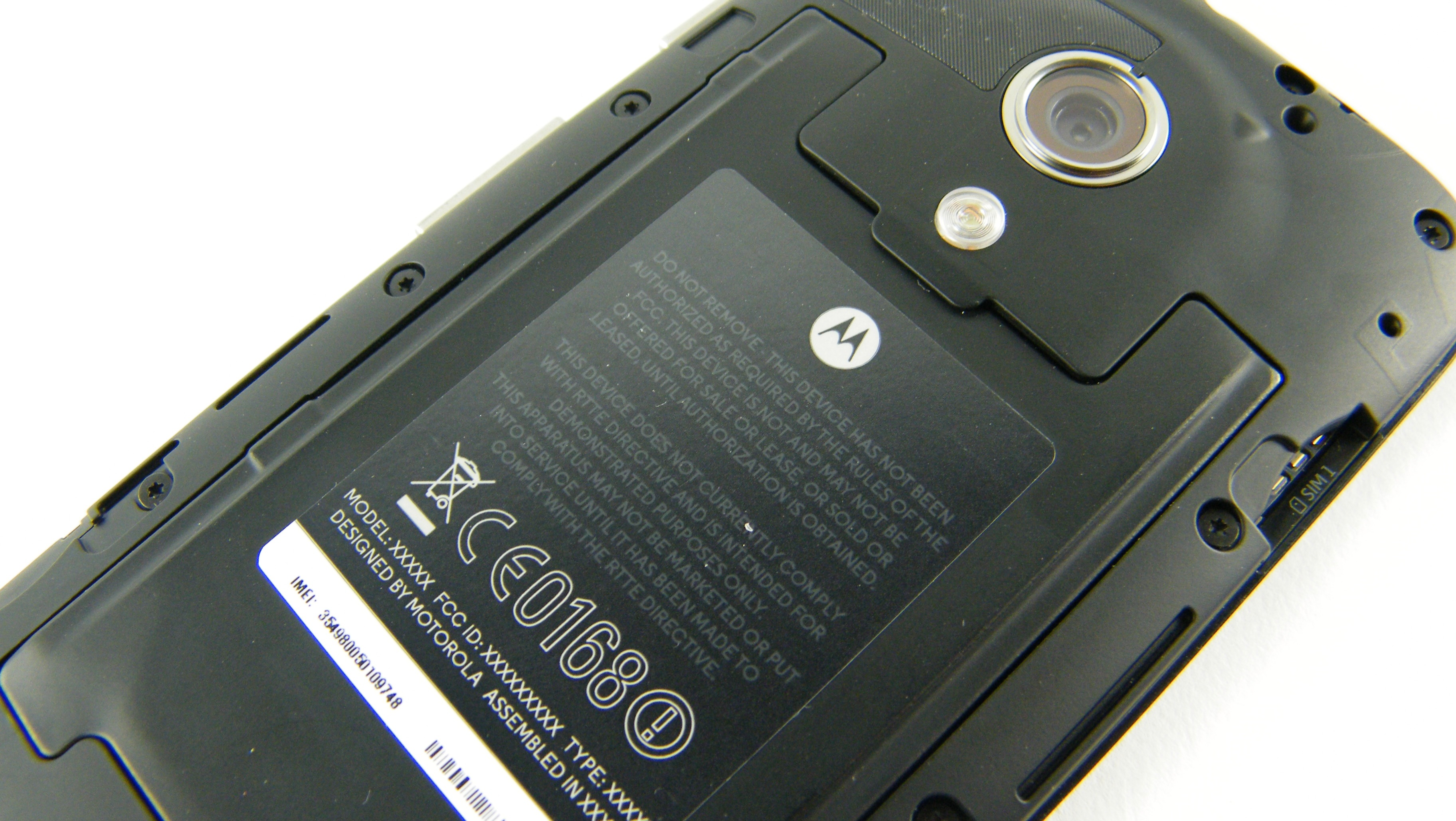
On the base is a microUSB port, while under the removable cover the only physical difference between the Moto G 4G and Moto G can be found.
Open up the 3G enabled Moto G and you'll spy a microSIM port on the side towards the top of the handset- but no microSD slot.
Now take a look at the Moto G 4G, and the microSIM port has changed to a microSD slot, with the new SIM location in the bottom corner of the handset.
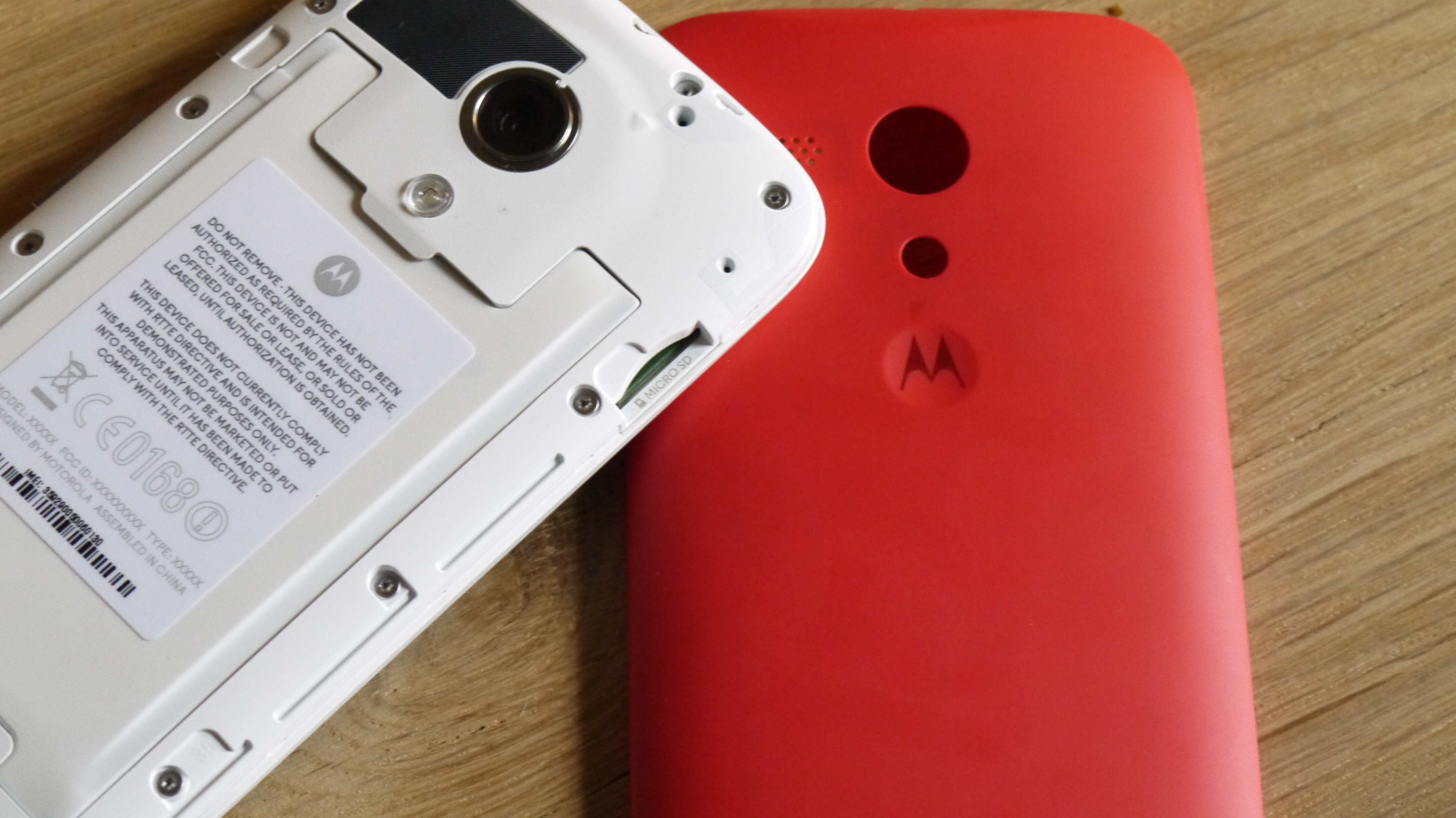
The 2070mAh non-removable battery housed inside the Moto G is claimed to give you all day battery life, and I put that to the test - skip ahead to the battery life and connectivity section to see how it got on.
The Moto G comes with a 4.5-inch, 1280 x 720 display and boasts a 329ppi pixel density. To put that in some perspective that's a bigger, higher resolution and more defined display than the iPhone 5S - not bad for a handset which is a third of the price.
Of course a HD display isn't the only key factor in a smartphone, but Motorola has managed to equip the Moto G 4G and G with a 1.2GHz quad-core Snapdragon 400 processor and 1GB of RAM.
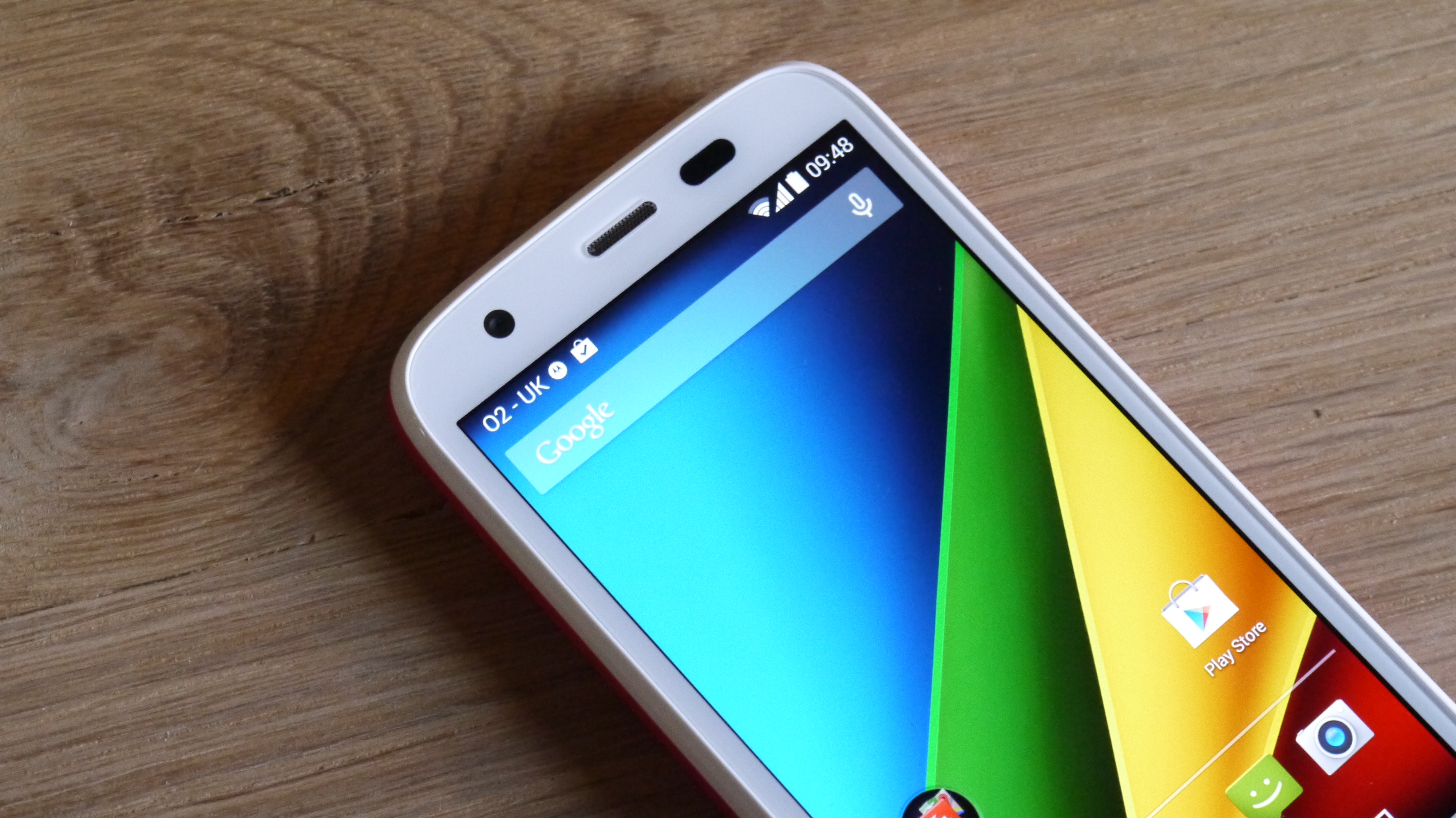
In terms of specs then the Motorola Moto G is actually giving the HTC One Mini, Samsung Galaxy S4 Mini and Nokia Lumia 820 a run for their mid-range, dual-core money - and once again the screen is bigger than these rivals. The Motorola handset even beats the Samsung and Nokia when it comes to resolution.
The camera on the rear of the Moto G is only 5MP and this is trumped by the S4 Mini and Lumia 820 and their 8MP snappers.
All in all the Moto G finds itself in no-mans land, with a complete disconnect between its price and spec list. This, of course, isn't a bad thing and on paper it offers outstanding value for money.
The proof however, is in the pudding, so let's see how the Motorola Moto G got on in real life.

TechRadar's former Global Managing Editor, John has been a technology journalist for more than a decade, and over the years has built up a vast knowledge of the tech industry. He’s interviewed CEOs from some of the world’s biggest tech firms, visited their HQs, and appeared on live TV and radio, including Sky News, BBC News, BBC World News, Al Jazeera, LBC, and BBC Radio 4.
